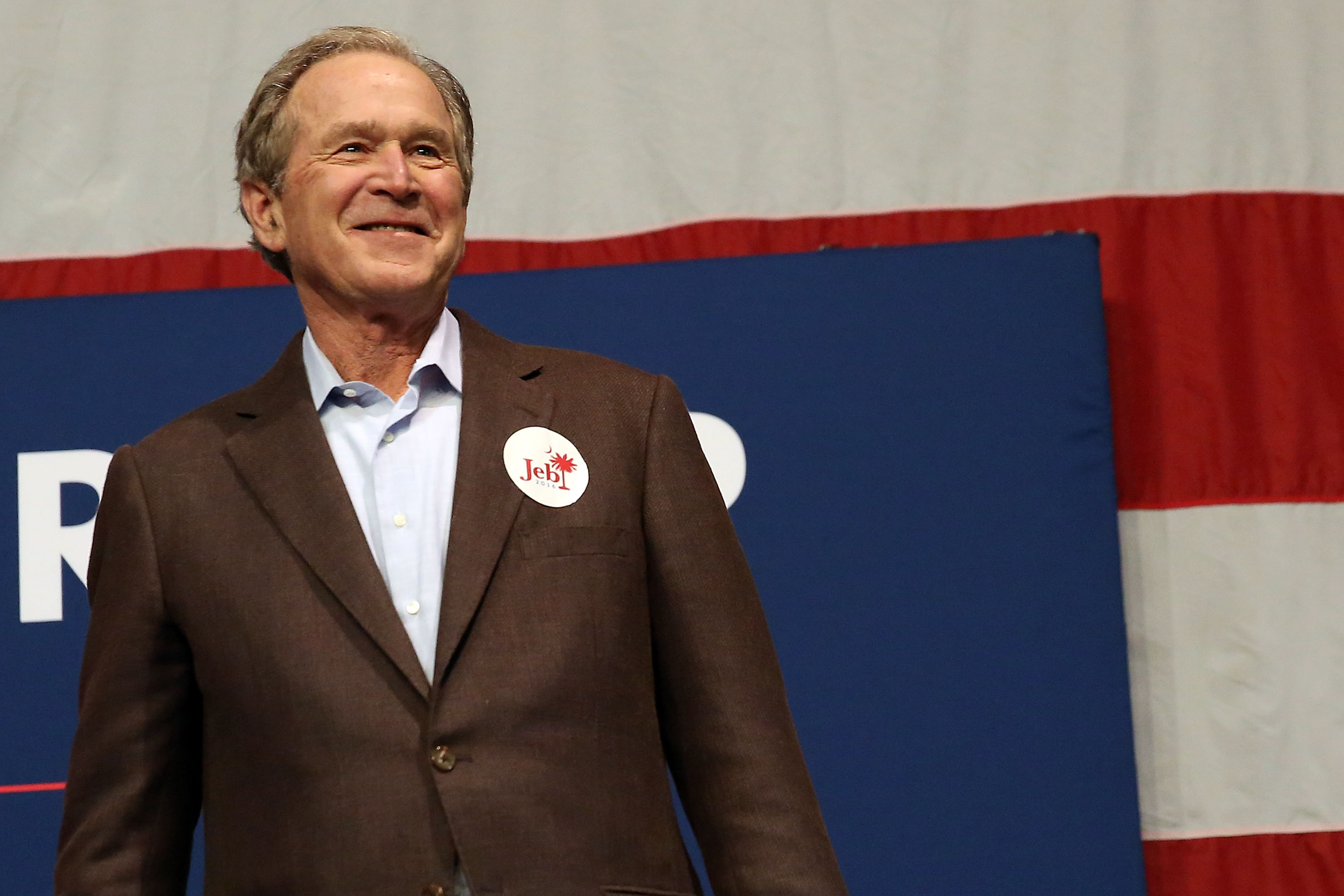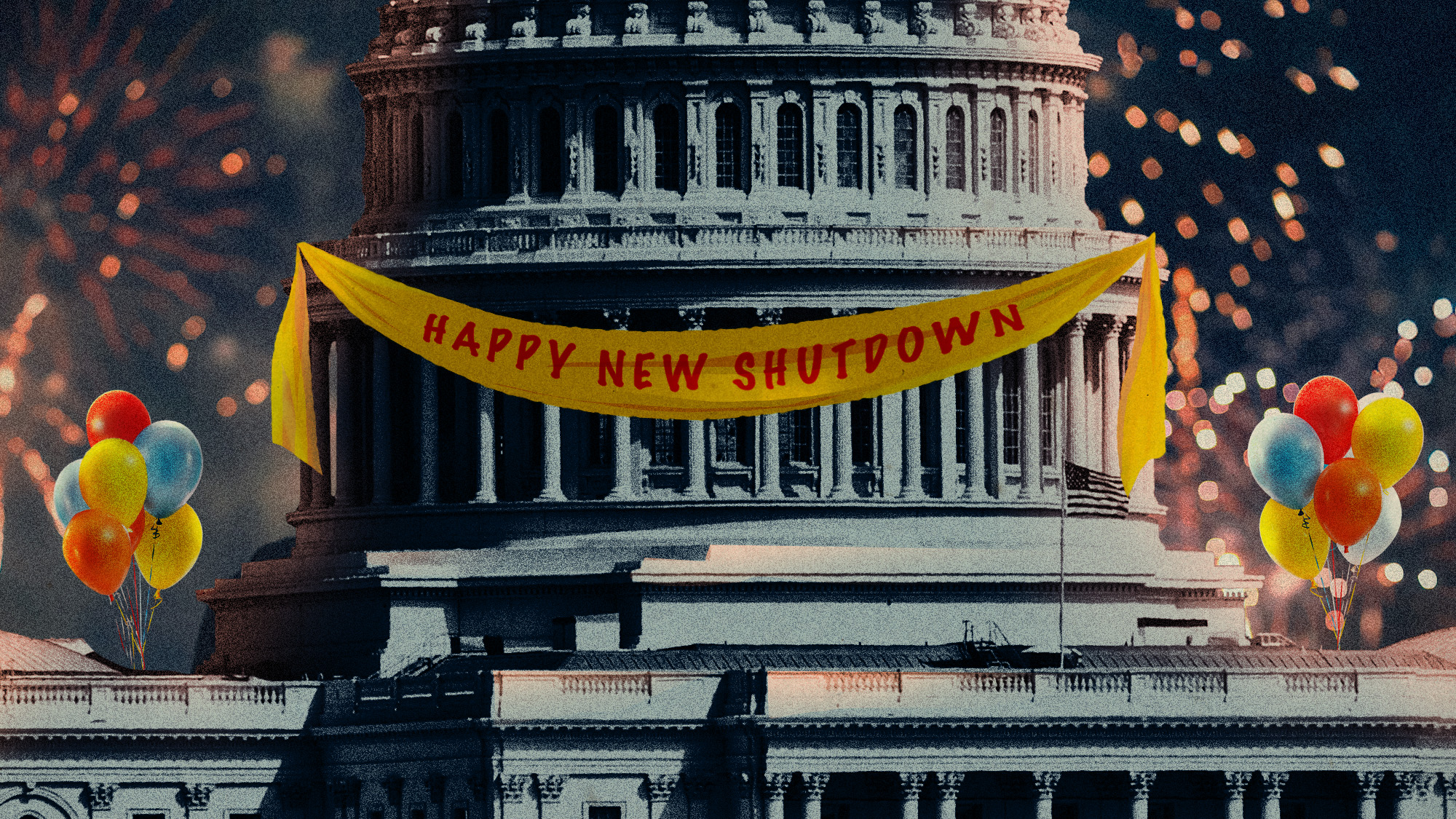I almost miss George W. Bush
The 2016 Republican candidates have done the unthinkable: They've made Dubya look moderate and reasonable


Dubya is back. George W. Bush has come to South Carolina, where 16 years ago he squashed John McCain like a bug, in an attempt to breathe some life into his little brother Jeb's limping presidential campaign. And while he can still draw a crowd — the event in North Charleston on Monday brought in an estimated 3,000 people, more than any rally Jeb has held in the campaign — Bush has largely been left behind by his party. Not only are today's Republicans ambivalent about his legacy, they've moved so far to the right in the last eight years that beside them, Bush's time in the White House seems like a model of reasonable, moderate policymaking.
It's not easy for me to say this, believe me. When he was president I penned hundreds of thousands of words on how foolish, misguided, damaging, and downright wrong just about everything he did was. I even wrote a whole book about how he was misleading the country (it can now be yours for a mere $0.01 on Amazon). But for all the harm he did, Bush is looking better and better.
It has taken the contemporary GOP to make us understand how often Bush's heart was in the right place, or that at least he could have been a lot worse. For instance, I used to mock "compassionate conservatism" for having little or no substance to it; my favorite example was the "Compassion Photo Album" featured on the Bush reelection campaign web site, which consisted entirely of photos of George and Laura alongside non-white people. So very compassionate. But today, even that symbolic effort to say that someone other that whites might be welcome in the GOP seems worthy of fulsome praise.
The Week
Escape your echo chamber. Get the facts behind the news, plus analysis from multiple perspectives.

Sign up for The Week's Free Newsletters
From our morning news briefing to a weekly Good News Newsletter, get the best of The Week delivered directly to your inbox.
From our morning news briefing to a weekly Good News Newsletter, get the best of The Week delivered directly to your inbox.
The party's frontrunner wants to build a wall between us and Mexico, insists that American Muslims celebrated the Sept. 11 attacks, and wants to bar all Muslims from coming to the U.S. The other contenders spend a good deal of their time arguing about who'll crack down harder on undocumented immigrants. And even as two of those contenders are Cuban-American, the GOP looks more than ever like it's only interested in the votes of white people.
On foreign policy, on the other hand, the candidates do all seem cut from the Bush mold: the same simplistic, Manichean thinking; the same belief that belligerence constitutes strength; and the same shocking disregard for unintended consequences, or even a willingness to entertain the idea that there could be unintended consequences, once we're done carpet-bombing. Yet even there they find a way to make Bush look good: While he visited a mosque six days after 9/11 and declared, "Islam is peace," they all insist that if you repeat the words "radical Islamic terror" enough times, the Victory Fairy will visit you and give you a magic sword with which you can smite your enemies.
So it may not be surprising that Republicans have mixed feelings about Bush. But those didn't emerge as the party moved to the right over the last few years; they were evident even during the final, miserable stages of his term. As Bush's approval ratings began to slump down to the 20s, with the endless wars and the economic collapse, conservatives could be heard saying, "I never liked him anyway," a refrain that grew louder after he left office. The real reason was that he was a failure, on nearly any measure you could find, yet they focused on the fact that the deficit had increased during his time (just as it had with Ronald Reagan, whom they believe walked the earth without sin).
For that shortcoming, those on the right who had supported Bush with so much vigor now insisted that he was no conservative at all. Logicians refer to this as the "no true Scotsman" argument, or as blogger Heather Digby Parton wrote, "Conservatism can never fail, it can only be failed." If George W. Bush initiated a fiasco of a war and presided over a weak economy culminating in outright economic catastrophe, then it can only mean that he was never a real conservative in the first place.
A free daily email with the biggest news stories of the day – and the best features from TheWeek.com
The truth, though, is that while there were transgressions like his program offering prescription drug coverage as part of Medicare, Bush gave conservatives almost everything they wanted: huge tax cuts for the wealthy, the gutting of regulations that affect corporations, foreign conquests (or at least the attempt thereof), and a couple of Supreme Court justices who have done everything they can to destroy abortion rights, enhance corporate power, bring more money into politics, broaden gun rights, curtail affirmative action, and make it easier to keep people from voting, among other things.
But it isn't enough for today's Republicans. They might defend Bush when Donald Trump points out that it's hard to say "he kept us safe" when 3,000 people died on his watch on September 11, but Bush will never be Reagan, for the simple reason that Reagan left as a winner, while Bush left looking like a loser. According to a new Morning Consult poll, when Republicans were asked whether the fact that Dubya is advising Jeb makes them more likely to vote for the younger Bush, 26 percent said it made them more likely, 20 percent said less likely, and 51 percent said it made no difference. Not exactly a ringing endorsement.
So now his little brother, the hapless Jeb, is likely to sully the family name even further. Even voters who still feel fondly about Dubya aren't in much of a mood to support Jeb, particularly when there are far more compelling candidates around. And in today's GOP, the George W. Bush so many found appallingly right-wing would be not just a moderate, but way too moderate to even have a chance of winning his party's nomination.
I'm sure even Bush himself finds it amazing.
Paul Waldman is a senior writer with The American Prospect magazine and a blogger for The Washington Post. His writing has appeared in dozens of newspapers, magazines, and web sites, and he is the author or co-author of four books on media and politics.
-
 A January deadline could bring the pain all over again
A January deadline could bring the pain all over againToday’s Big Question A January deadline could bring the pain all over again
-
 Political cartoons for December 23
Political cartoons for December 23Cartoons Tuesday's political cartoons include an eye on CBS, cracking the middle class, and Donald Trump's name on everything
-
 Is Keir Starmer being hoodwinked by China?
Is Keir Starmer being hoodwinked by China?Today's Big Question PM’s attempt to separate politics and security from trade and business is ‘naïve’
-
 Has Zohran Mamdani shown the Democrats how to win again?
Has Zohran Mamdani shown the Democrats how to win again?Today’s Big Question New York City mayoral election touted as victory for left-wing populists but moderate centrist wins elsewhere present more complex path for Democratic Party
-
 Millions turn out for anti-Trump ‘No Kings’ rallies
Millions turn out for anti-Trump ‘No Kings’ ralliesSpeed Read An estimated 7 million people participated, 2 million more than at the first ‘No Kings’ protest in June
-
 Ghislaine Maxwell: angling for a Trump pardon
Ghislaine Maxwell: angling for a Trump pardonTalking Point Convicted sex trafficker's testimony could shed new light on president's links to Jeffrey Epstein
-
 The last words and final moments of 40 presidents
The last words and final moments of 40 presidentsThe Explainer Some are eloquent quotes worthy of the holders of the highest office in the nation, and others... aren't
-
 The JFK files: the truth at last?
The JFK files: the truth at last?In The Spotlight More than 64,000 previously classified documents relating the 1963 assassination of John F. Kennedy have been released by the Trump administration
-
 'Seriously, not literally': how should the world take Donald Trump?
'Seriously, not literally': how should the world take Donald Trump?Today's big question White House rhetoric and reality look likely to become increasingly blurred
-
 Will Trump's 'madman' strategy pay off?
Will Trump's 'madman' strategy pay off?Today's Big Question Incoming US president likes to seem unpredictable but, this time round, world leaders could be wise to his playbook
-
 Democrats vs. Republicans: who do the billionaires back?
Democrats vs. Republicans: who do the billionaires back?The Explainer Younger tech titans join 'boys' club throwing money and support' behind President Trump, while older plutocrats quietly rebuke new administration
